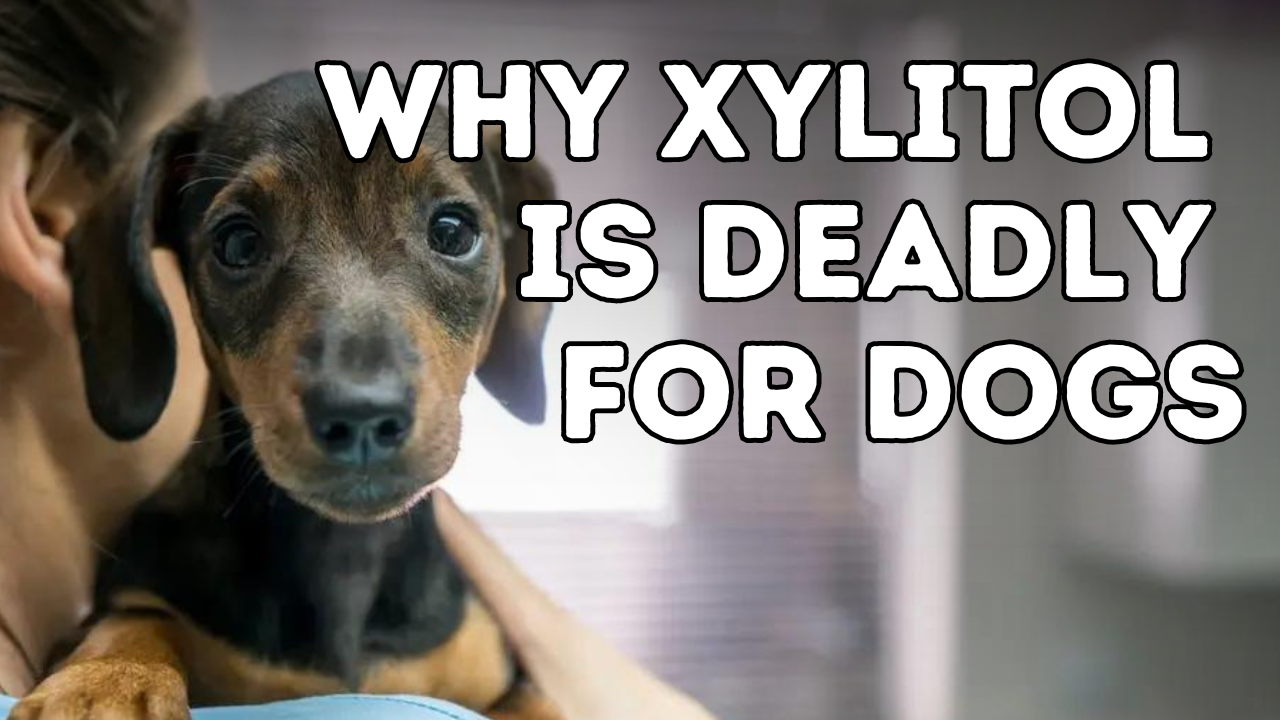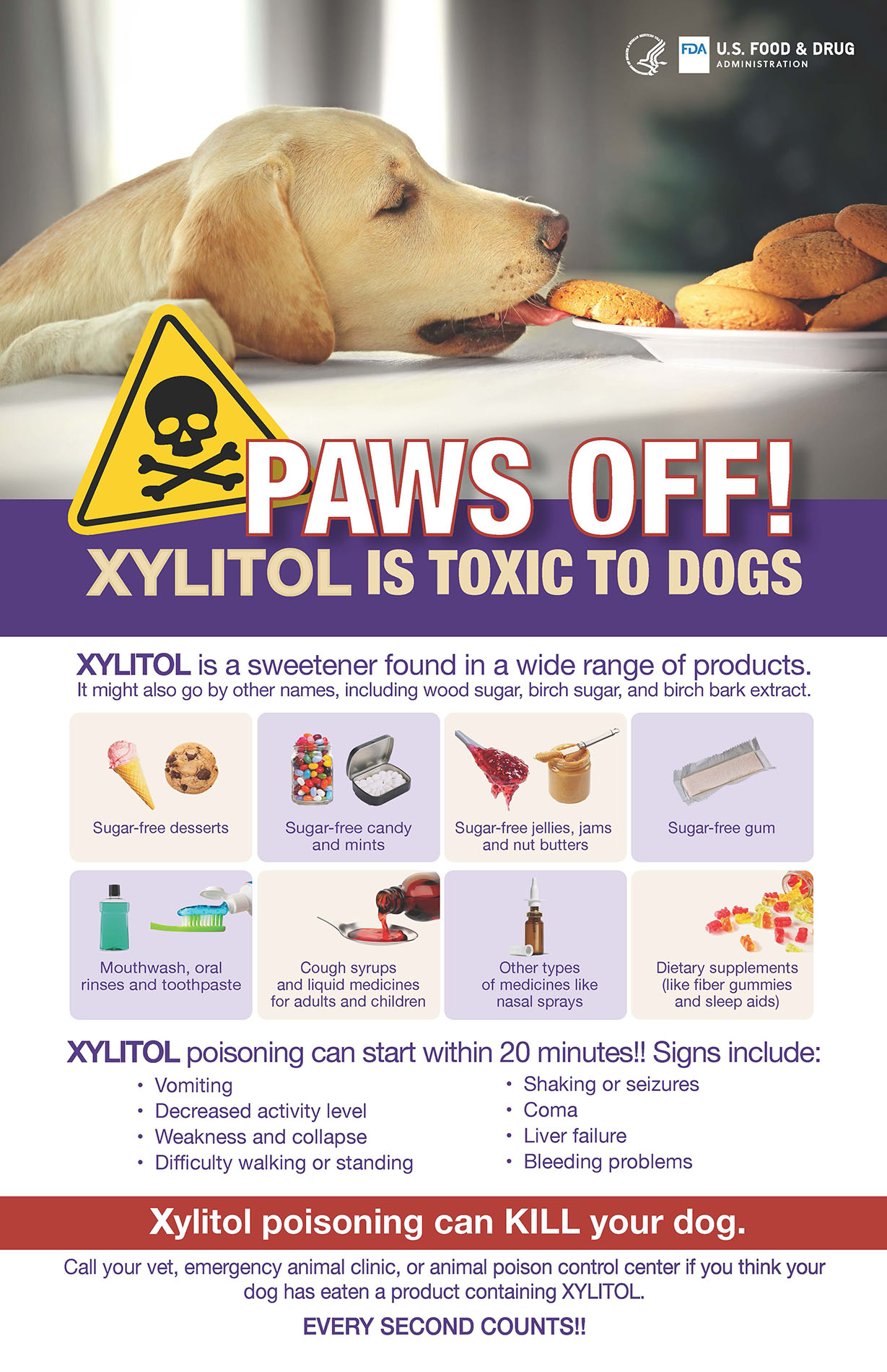Why Xylitol is Deadly for Dogs and How to Keep Them Safe

I am personally not a fan of ‘substitute’ products- those chemicals that are supposedly healthier for you, but then it turns out they have side effects…
In general it’s better to take things that you are know are real, and you can pronounce.
Same thing for our pets… for instance one key nutrient that has now been shown to go a long way in helping prevent, and manage many pet health conditions (ie diarrhea, allergies), is probiotics- the good bacteria that inhabit the intestinal tract.
Your dog or cat on conventional Pet Food do NOT get many of these – but they can be SO beneficial.
Both our Ultimate Feline Supplement and Ultimate Canine Advanced Supplements have added probiotics.

Ultimate Feline Health Formula has a complete blend of 7 different probiotics to HELP your cat in many ways.
Ultimate Canine ADVANCED Health Formula has a 10, 000% increase in probiotic levels, including the most studied probiotic for dogs, Lactobacillus.

What Is Xylitol Poisoning?
A concerned subscriber recently reached out to me about their dog being poisoned with Xylitol from what was labeled as a ‘safe’ human medication. It’s crucial for pet owners to understand that while certain substances may seem harmless to us, they can be extremely dangerous to our pets. Xylitol, a common ingredient in many products, is one such substance.
(Source: www.petmd.com)
Understanding Xylitol and Its Prevalence
Xylitol is a natural sugar alcohol and a popular sugar substitute that doesn’t actually contain alcohol. Despite its benefits for human use, such as in dental care products due to its ability to prevent cavities, it poses significant risks to dogs. Products that commonly contain xylitol include:
- Sugar-Free Foods: Including desserts, peanut butter, candies, jellies, cereals, and syrups.
- Medications: Such as cough drops and chewable vitamins.
- Dental Care Products: Including toothpaste and mouthwash.
- Beauty Products: Such as shampoos and deodorants.
The Dangers of Xylitol to Pets
While harmless to humans, xylitol is toxic to dogs and potentially lethal. The substance affects the way blood sugar is regulated in their bodies. In dogs, xylitol prompts a rapid release of insulin from the pancreas, leading to a sudden drop in blood sugar levels, a condition known as hypoglycemia. In severe cases, xylitol ingestion can also lead to liver damage or even liver failure, although the exact mechanism remains unclear.
Recognizing Symptoms of Xylitol Poisoning
If your dog ingests xylitol, symptoms can appear anywhere from 30 minutes to 12 hours after ingestion. Key signs include:
- Vomiting
- Weakness or loss of balance
- Stumbling or lack of coordination
- Lethargy or depression
- Tremors or seizures
- Collapse or coma
Immediate action is crucial. If you suspect your dog has ingested xylitol, or if they exhibit any of these symptoms, take them to a veterinary emergency hospital right away.

Frequently Asked Questions About Xylitol Poisoning
-
How much xylitol is toxic to dogs? Even small amounts, such as 0.045 grams per kilogram of body weight, can induce hypoglycemia. Liver damage might occur with slightly higher doses.
-
How quickly does xylitol affect dogs? Effects can be seen as soon as 30 minutes post-ingestion or be delayed up to 12 hours.
-
What should I do if I suspect xylitol poisoning? Seek immediate veterinary attention if your pet shows signs of distress or if you know they have ingested a xylitol-containing product.
-
What is the most severe illness from xylitol? Hypoglycemia is common, but higher doses can cause liver damage or failure, which can be fatal if not treated promptly.
Remember, always check the ingredients of products, especially those that are artificially sweetened or intended for dental care. No amount of xylitol is safe for your pets. This vigilance could save your pet’s life.


Dr Jones, I love your information for our pets, but I was shocked to see, that you showed us a vitamin E product from the NOW company and the first ingredient is xylitol ?How can this happen???